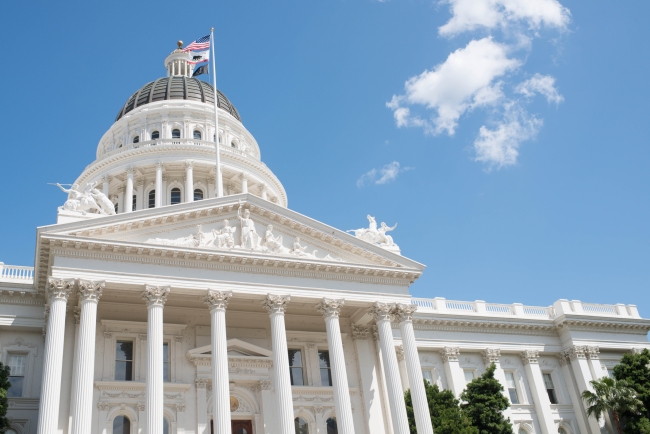You have /5 articles left.
Sign up for a free account or log in.

The California Capitol Building.
bbourdages/iStock/Getty Images Plus
As the nation grapples with a presidential candidate with 34 felonies, it is clear it is time to generate a more effective link between our institutions of higher education and our political system. Electing officials who primarily benefit the upper echelons of society is not socially sustainable. Having majority wealthy, heterosexual, white male legislatures is not a recipe for good governance.
A reflective society will learn not only to be environmentally sustainable, but socially sustainable as well. One way we can do that is by broadening legislative bodies to reflect the diversity of our population. To do so, we can encourage a next generation of political leaders within public regional universities by supporting a postsecondary-to-political pipeline that embraces sociology, ethnic studies, gender studies and environmental studies.
Public regional universities allow broad access to education and our student bodies reflect that inclusion. Working- and middle-class students and students of color attend and graduate from public regional universities in large numbers. Increasing the number of legislators who are alumni from these institutions is a strong move toward social sustainability.
Legislatures enact policy that reflects their members’ interests and demographics in myriad ways. For example, a research study co-authored by one of us (Thiele Strong) found that legislatures composed of a higher percentage of lawmakers who themselves were educated in the public higher education system spend more on public higher education compared to legislatures with a lower percentage of publicly educated lawmakers.
We have seen similar feedback loops with other elected officials. For example, the governor of Minnesota and newest vice presidential candidate, Tim Walz, is a graduate of two regional public universities, Chadron State College and Minnesota State University, Mankato. He is popular in his state, in part, for his commitment to public education, including a 2023 education bill that secured an additional $2.3 billion for public schools.
It is therefore important—both in terms of promoting broad access to higher education, and in terms of an institution’s own self-interest—for our public universities to elevate those who have experienced the education they offer into policy arenas. What might this look like? First, students who are interested in politics need a clear map of which courses they can take to make themselves a viable and robust political candidate. The driving force of a postsecondary-to-politics pipeline needs to be an inclusion of courses that delve into the way our society works. Theoretical frameworks popular in economics and political science have too long led the way in the policy area. We need to encourage a robust curriculum that prioritizes underutilized fields like sociology, ethnic studies, gender studies and environmental studies. These fields offer access to nuanced understandings, to counternarratives and knowledge that can help create bridges in a deeply polarized society. Universities can circulate this roadmap and create a major around it.
Second, we can use the resources we have, such as instructors who have worked in legislative bodies. We can also follow policy decisions and news related to legislation in our classes. Legislative policies branch into all disciplines on campus.
Third, we can network. We can invite local, state and federal representatives onto campus and into our classrooms. We know that beyond academic knowledge (the “what we know”), social capital (the “who we know”) also matters.
We can, of course, encourage students to take political actions such as voting.
In California, ethnic studies courses are (or soon will be) required in both secondary schools and within the California State University system for graduation. If others can follow this model of curriculum decolonization and develop postsecondary-to-political pipelines for students to become politically engaged at the local, state and federal levels, we can increase the legitimacy of our political system.
It is no longer enough for our public regional universities to educate students. We must think beyond the degree and into our political chambers and create a clear pathway for students from our vast public regional university systems into our government and policy arenas so that they can shape a sustainable political future.
As we learn to exist in an era of increasing polarization, one marked by teachers carrying guns, book bans, educational gag orders, anti-DEI legislation and climate destabilization, we need a flush resource of broadly educated political actors. It is time for us to invest in a postsecondary-to-political pipeline, which includes sociology, ethnic, gender and environmental studies and elevates publicly educated leaders.




